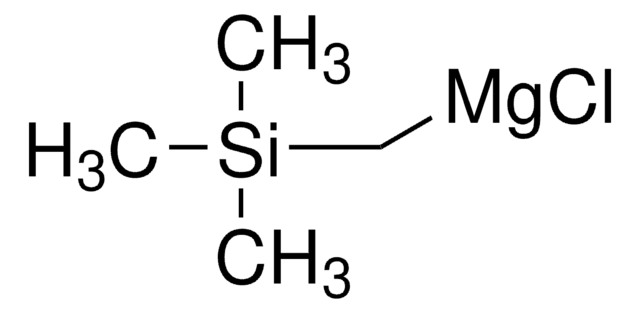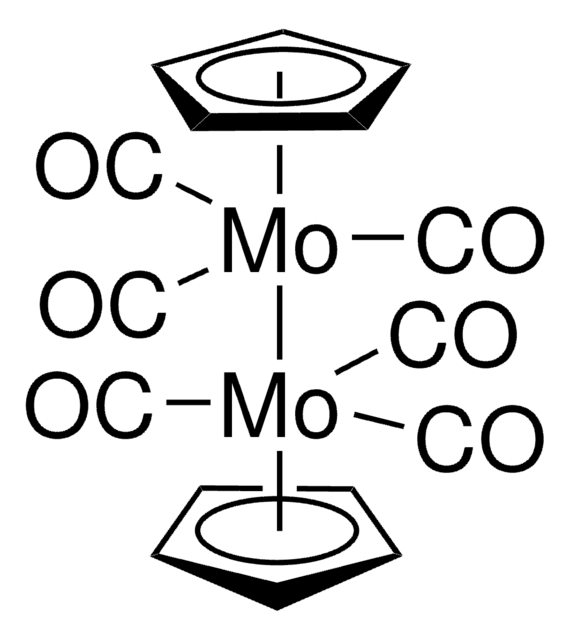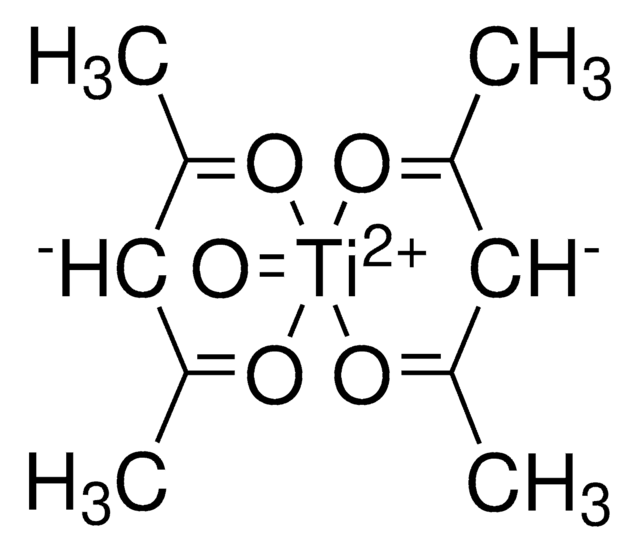227749
Bis(acetylacetonato)dioxomolybdenum(VI)
Synonym(s):
MoO2(acac)2, Molybdenum diacetylacetonate dioxide, Molybdenum dioxide bis(acetylacetonate), Molybdenum dioxydiacetylacetonate, Molybdenyl acetylacetonate
About This Item
Recommended Products
form
powder
Quality Level
reaction suitability
core: molybdenum
reagent type: catalyst
mp
184 °C (dec.) (lit.)
storage temp.
2-8°C
SMILES string
CC(=O)\C=C(\C)O[Mo](=O)(=O)O\C(C)=C/C(C)=O
InChI
1S/2C5H8O2.Mo.2O/c2*1-4(6)3-5(2)7;;;/h2*3,6H,1-2H3;;;/q;;+2;;/p-2/b2*4-3-;;;
InChI key
SKMUJBBRXZPAJY-VGKOASNMSA-L
General description
Application
- As a starting material to synthesize dioxomolybdenum(VI) Schiff base complexes, applicable as catalysts in the oxidation of alcohols using H2O2.
- To prepare graphene oxide supported heterogeneous molybdenum catalysts for epoxidation of olefins.
- As a catalyst in the etherification and thio-etherification reactions of thiols and alcohols.
Signal Word
Warning
Hazard Statements
Precautionary Statements
Hazard Classifications
Acute Tox. 4 Dermal - Acute Tox. 4 Inhalation - Acute Tox. 4 Oral - Carc. 2 - Eye Irrit. 2 - Skin Irrit. 2 - STOT SE 3
Target Organs
Respiratory system
Storage Class Code
11 - Combustible Solids
WGK
WGK 3
Flash Point(F)
Not applicable
Flash Point(C)
Not applicable
Personal Protective Equipment
Regulatory Listings
Regulatory Listings are mainly provided for chemical products. Only limited information can be provided here for non-chemical products. No entry means none of the components are listed. It is the user’s obligation to ensure the safe and legal use of the product.
PRTR
Class I Designated Chemical Substances
ISHL Indicated Name
Substances Subject to be Indicated Names
ISHL Notified Names
Substances Subject to be Notified Names
JAN Code
227749-VAR:
227749-50G:4548173932712
227749-BULK:
227749-10G:4548173932705
227749-250G:
Choose from one of the most recent versions:
Already Own This Product?
Find documentation for the products that you have recently purchased in the Document Library.
Customers Also Viewed
Our team of scientists has experience in all areas of research including Life Science, Material Science, Chemical Synthesis, Chromatography, Analytical and many others.
Contact Technical Service












